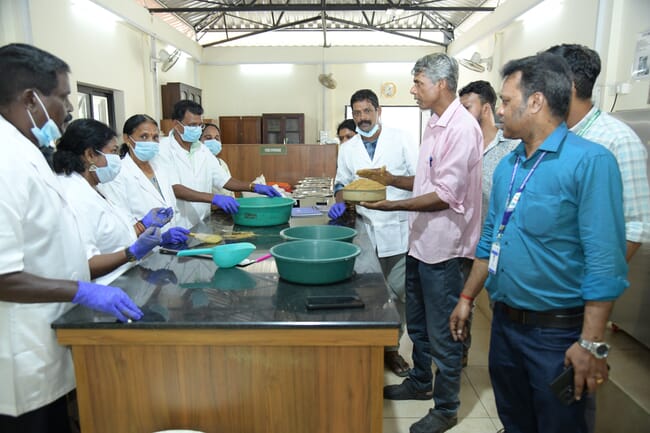
© CMFRI
Established by the Government of India in Kochi, CMFRI is the country’s leading institution for research on sustainable marine fisheries, ecosystem management and aquaculture development. The offered BSF training is aimed at empowering beneficiaries of CMFRI’s Scheduled Caste Sub Plan (SCSP) with practical knowledge and skills in sustainable feed formulation and production techniques for cage fish and biofloc farming practices.
According to the institute, fish feed produced using BSF larvae is effective to support fish growth in aquaculture making it a viable substitute for conventional feed ingredients such as fish meal and soybean. BSF larvae is a nutrient-rich and eco-friendly alternative protein source.
CMFRI director, Dr Grinson George, inaugurated the training and said that this initiative is part of the intitution’s ongoing efforts to enhance livelihood opportunities for marginalised coastal communities through targeted capacity building.
Cost-effective feed
“The cost of feed is a major factor in fish farming, making up 40-60 percent of total operational cost in general. This is even higher in an intensive farming system. Hence, cost effective pellet feed preparation is crucial to increase profit from cage and bio-floc fish farming, which are becoming popular livelihood options for many, including women”, said Dr George in a press release.
Under the SCSP scheme, CMFRI supports fish farmers belonging to the Scheduled Caste community to undertake cost-effective coastal aquaculture practices, including cage fish farming and biofloc farming.
“The participants will be trained in processing BSF larvae into fish feed, showcasing its potential to reduce dependency on conventional fish meal and promote circular economy practices in coastal aquaculture,” Dr George added.


